Tania De Rozario is a writer, artist and the author of four books. Her latest collection, Dinner on Monster Island, (Harper Perennial, 2024), has been described as “sharp and searing” (Ms. Magazine), “unique” (Publishers Weekly), “a book with resonance” (Kirkus Reviews), “taut and riveting” (LA Times), “elegant”, “droll” and “magnetic” (British Columbia Review). Tania’s writing has won the New Ohio Review Nonfiction Contest (2020) and the Muriel Craft Bailey Poetry Contest (2021), has been a finalist at the Lambda Literary Awards (2021) and has been published in journals/anthologies across four continents. Her art has been showcased in Singapore, Europe and the US. Born in Singapore, she lives on the traditional unceded territories of xʷməθkʷəy̓əm (Musqueam), Sḵwx̱wú7mesh (Squamish), and səlilwətaɬ (Tsleil-Waututh) Nations.
I had the opportunity to interview Tania, which you can read below.
First of all, welcome to Geeks OUT! Could you tell us a little about yourself?
Hello! Thanks for having me! My name is Tania. I was born in Singapore, where I spent most of my life. I’m currently coming to you from the traditional and unceded territories of the Musqueam, Squamish and Tseil-Waututh First Nations, colonially known as Vancouver, Canada, where I’ve been living since 2018.
What can you tell us about your book of essays?
Dinner on Monster Island is a collection of essays that looks at my personal experiences growing up queer, brown and fat in 80s/90s Singapore. It blends memoir with elements of history, pop culture, horror films, and current events to explore the nature of monsters, monsters as a stand-in for difference, and what monstrosity means within the sphere of horror as well as outside of it.
What was the inspiration for this book?
In 2018, I went back to school. The first assignment I got involved writing a letter to someone. My mother had died that same year and we had a lot of unresolved issues between us. I had left my bio-family’s home a decade-and-a-half prior without telling anyone who lived there that I was not coming back. And that experience was what the letter ended up being about. And that is where the collection started. As I took more and more classes, I was writing consistently, and I started to realise that a lot of my work dealt with experiences of growing up in Singapore and/or living there as a young adult and that is when the seed of the collection was planted. So a handful of the essays were written for class, after which I drafted a fuller proposal for the book, and the rest of the essays were written towards that proposal.
From the title again, Dinner on Monster Island touches on the theme of monstrosity, both within your own life and in the “monstrous” world we all live in and the “monstrous” creatures we live with. What do you see as the personal relationship between monsters/monstrosity and queerness?
I often quip about how my love of horror films was a natural consequence of having lived one. I was “exorcised” at the age of twelve. My mother believed there were actual demons inside of me and a bunch of people literally thought they were getting them out of me — adults looked at me and thought I contained evil precisely because I was queer. Logically, it makes sense that I would love monsters — it’s how I learned to love myself.
Queerfolk are often treated like monsters in the real world. Our bodies are legislated, our intentions are vilified, our desires are demonised – we are seen as bodies that need to be controlled, cleansed. The way I see it, when immersed in the fantasy world of film, why wouldn’t many of us have a personal affinity with monsters?
As a writer, what drew you to the art of storytelling, especially non-fiction?
When I started writing I wasn’t really thinking about genre, or about storytelling. I didn’t have a background in creative writing. I did my undergrad degree in Visual Art and my writing started as little journal entries in my sketchbooks. I think that is definitely where the confessional and non-fiction elements of my work started. In my sketchbooks, as notes, and as poetry.
What are some of your favorite elements of writing? What do you consider some of the most frustrating and/or difficult?
So I think that when it comes to writing nonfiction -whether that be in the form of memoir or poetry-
the hard experiences and the joyful experiences are not altogether separate. There is pleasure and joy and release from extracting a difficult story or experience or feeling that is stuck in your head or in your chest, putting it on paper, and then crafting it into a thing that becomes totally separate from you. This process of course gets more difficult when these stories or feelings are amorphous or unruly or highly emotional. But really, it’s when they are the most difficult that getting them on the page in a way that feels good and makes sense, is the most cathartic and satisfying. The more difficult the telling, the more joyous the feeling of getting in out in a way that feels well-crafted, effective, lyrical – whatever it is you are going for.
As a writer, who or what inspires you?
Monsters, monstrosity, horror films, poetry, seeking connections between disparate ideas, and the strength, resilience and joyful audacity of my queer family – intimate and extended.
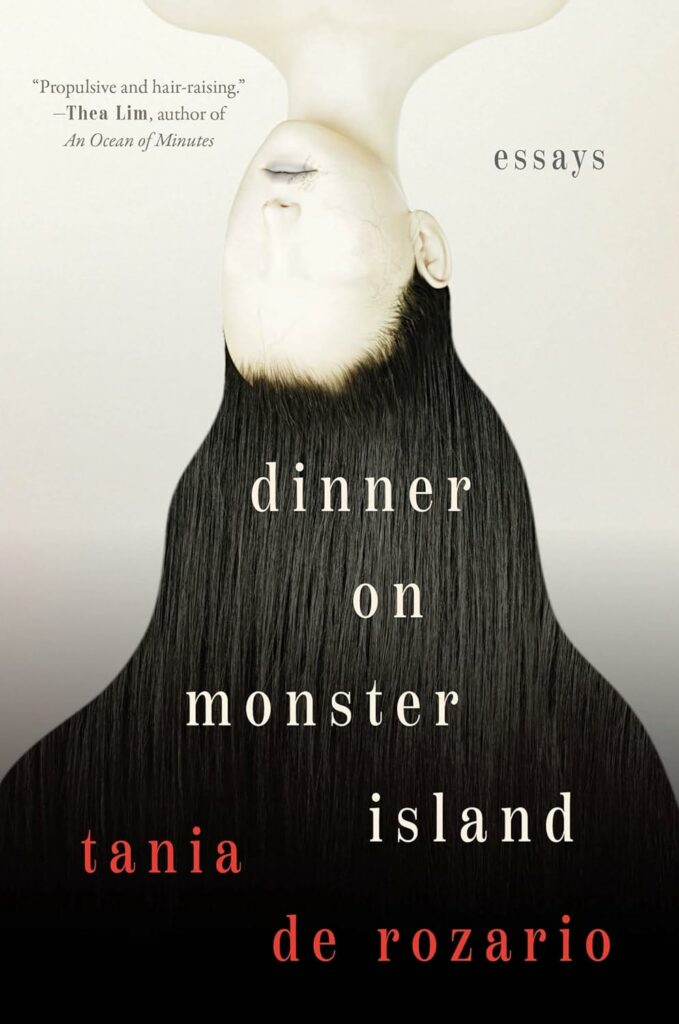
Many authors would say one of the most challenging parts of writing a book is finishing one. What strategies would you say helped you accomplish this? How would you describe your writing process?
I am not a very organized person by nature. So I work really hard to set detailed schedules and deadlines for myself because if I don’t have a schedule to look at, I am unable to get anything done. I also have a short attention span so I have cube timers that go off at intervals to remind myself of what I am supposed to be doing.
But what I think has been most useful is scheduling co-writes with other friends who are also writers. We meet 2-3 times a week online for 2-3 hours, wave hi to each other on Zoom, write for the scheduled time, wave goodbye, and log off. I’ve been doing this since 2020. It’s been really helpful in keeping me grounded and providing some element of routine – which can be challenging for a freelance worker.
In terms of the writing process, I would say that 80% of my time is actually re-writing. Apart from that, I don’t have a specific routine in terms of time or place. Things I need: coffee, notebook, pen, laptop, music.
Aside from your work, what are some things you would want others to know about you?
Nothing in particular. Because I put quite a lot of myself out there via my work, I tend to be very guarded about how I share myself with others in the everyday.
What’s a question you haven’t been asked yet but that you wish you were asked (as well as the answer to that question)?
Well, I wish Mike Flanagan would ask me if I would like to work on a collaborative novelization of Midnight Mass. I would ask him but … I have no idea how to do that, haha. Does anyone out there know him? Will they shout me out to him on Instagram? Please? Pretty please?
What advice might you have to give for any aspiring writers?
Lean into your weirdness. Lean into the subject matter that you’re an absolute nerd for. Lean into the devices that make you feel good when you write. Editing is important, but that is for later.
Are there any other projects you are working on and at liberty to speak about?
I’m currently working on a poetry and illustration project that shall remained unnamed, together with illustrator Marian Churchland. I am pretty excited about it. I’m writing poems and they are illustrating – it’s a good time. There is something really special about meeting someone you enjoy working with.
Finally, LGBTQ+ books/authors would you recommend to the readers of Geeks OUT?
Oh, this is the easiest question. The Hchom Book by Marian Churchland. Like a Seed With Its Singular Purpose by Cyril Wong. The Gospel of Breaking by Jillian Christmas. My Art is Killing Me by Amber Dawn. Her Body and Other Parties by Carmen Maria Machado. Also I am really looking forward to Sarah Leavitt’s Something, Not Nothing, which launches this week!

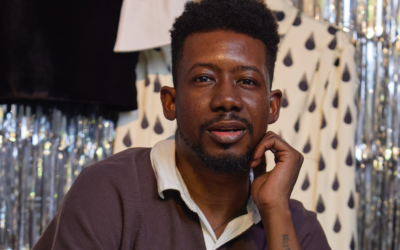
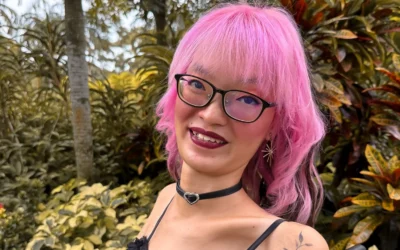
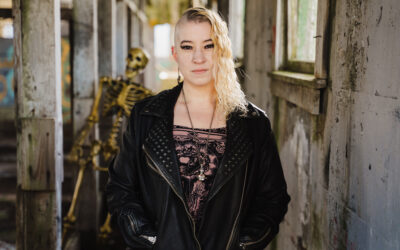
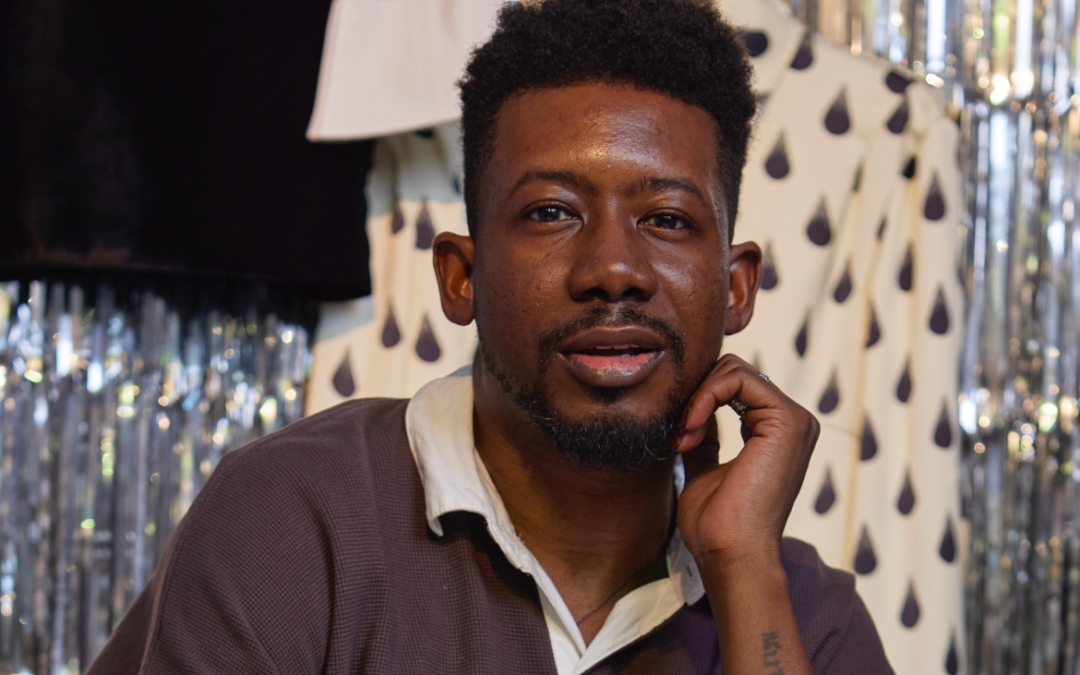
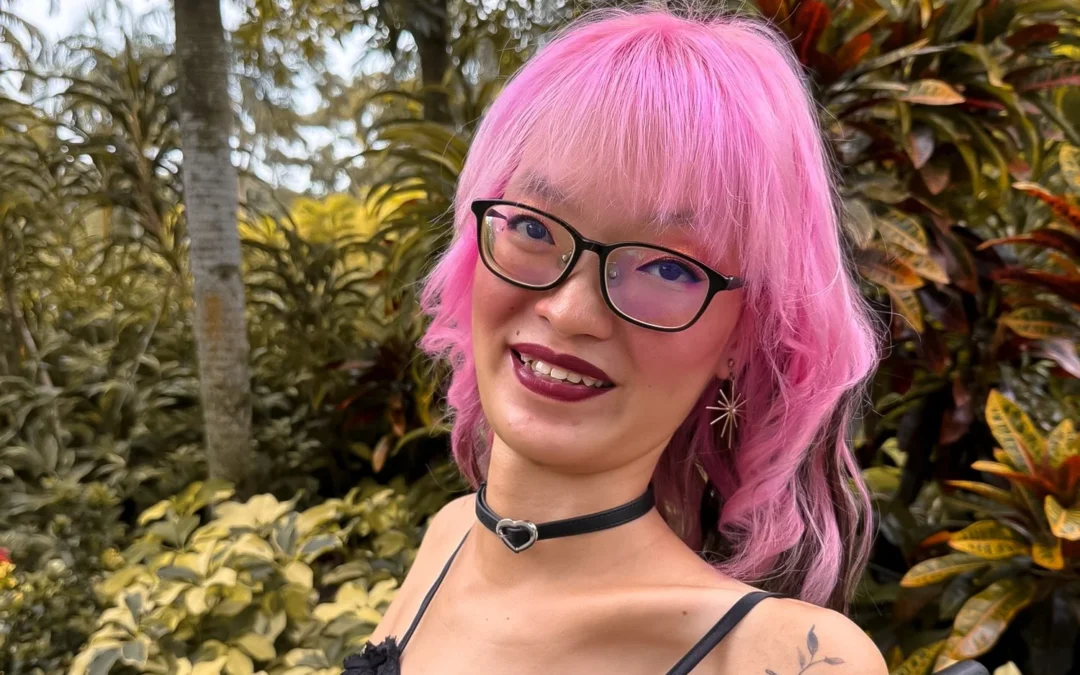
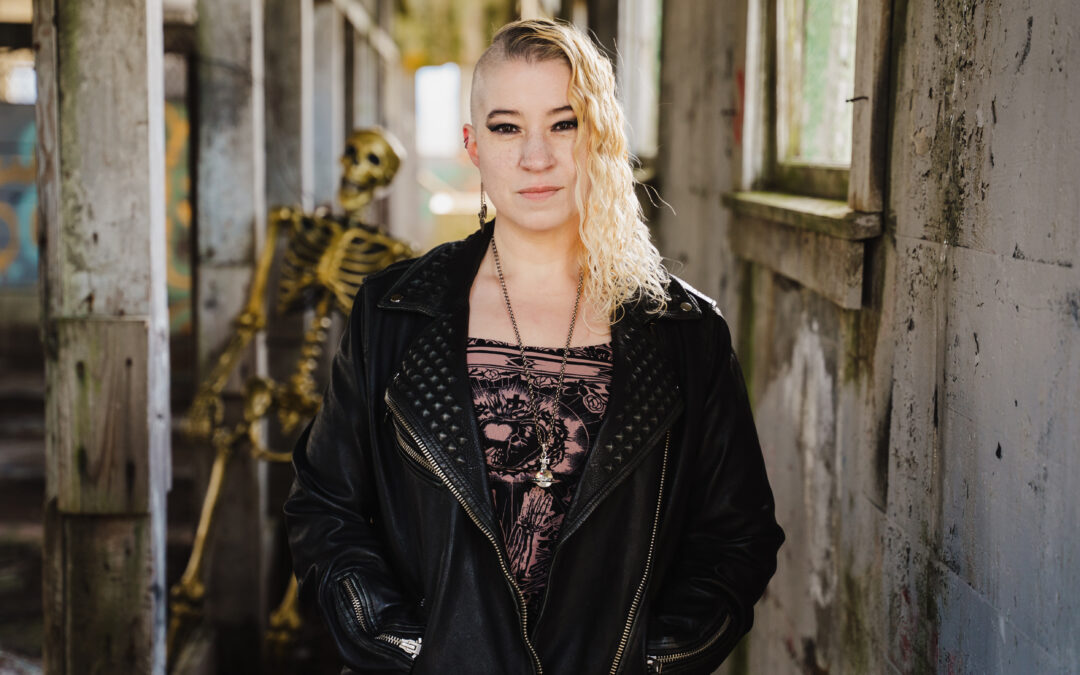
0 Comments